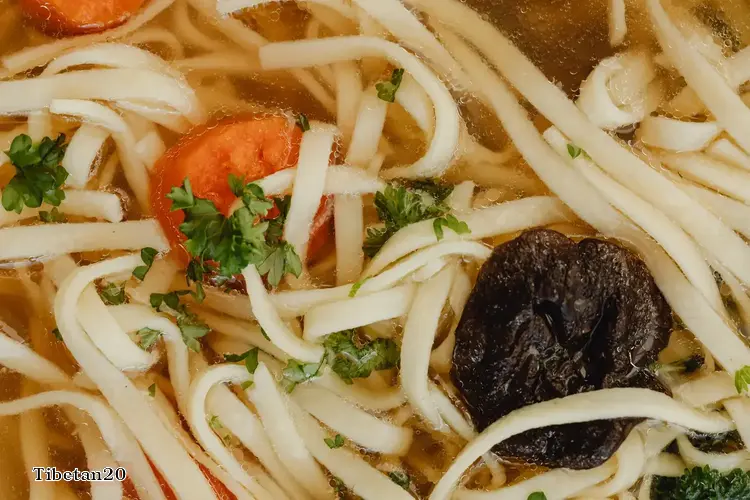

Tibetan cuisine is known for its use of local ingredients such as barley, wheat, mutton, beef, and dairy products. Meat dishes are popular, especially mutton and beef, which are often cooked with spices and herbs such as ginger, garlic, cumin, coriander, and chili peppers.
One of the staple foods in Tibet is Tsampa, which is a type of roasted barley flour. It is usually mixed with butter, tea, and sugar to make a dough-like food called 'torma'. This is a popular food during special occasions such as weddings and religious gatherings.
Momos are another popular Tibetan dish, which are steamed dumplings filled with meat (usually mutton or beef) or vegetables. They are often served with a spicy dipping sauce.
Thukpa, a noodle soup made with a variety of vegetables, noodles, and sometimes meat or eggs, is a popular comfort food in Tibet.
Butter tea, also known as po cha in Tibet, is a traditional tea made from fermented yak butter, black tea, and salt. It is a staple beverage in Tibetan culture.
Other notable Tibetan foods include Shaphaley (a savory fried pastry), Sha Phaley (a fried doughnut), Chang (a barley beer), and Gol gappe (a deep-fried pastry shell filled with flavored water).
Tibetan cuisine is very well known for its use of spices and herbs. They use various spices and herbs, including cumin, coriander, ginger, garlic, turmeric, and chili peppers. Saffron, cardamom, and cloves are also frequently used in Tibetan cuisine.
DISCLAIMER: This information is provided for general informational purposes only, and publication does not constitute an endorsement. Kwick365 does not warrant the accuracy or completeness of any information, text, graphics, links, or other items contained within this content. Kwick365 does not guarantee you will achieve any specific results if you follow any advice herein. It may be advisable for you to consult with a professional such as a lawyer, accountant, or business advisor for advice specific to your situation.
today
Copyright © 2026 KwickEAT.com
Designed by KwickPOS is the best restaurant POS